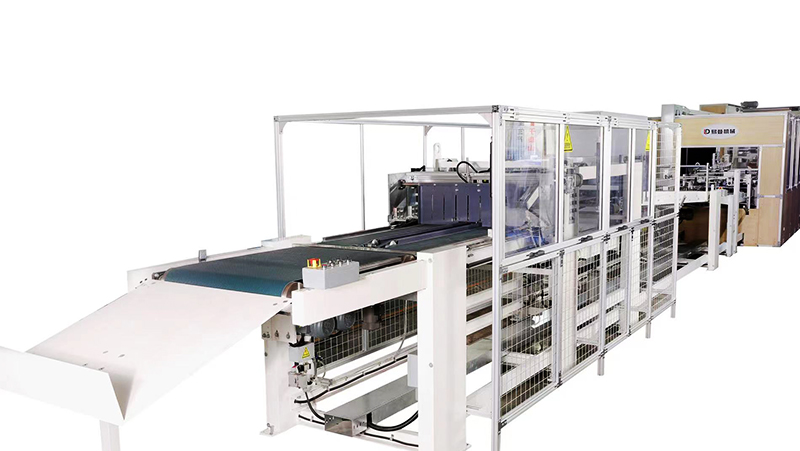Multi-Material Compatible Bag Machine: Revolutionizing Flexible Packaging Efficiency and Versatility
Release time:2025-05-10 Classification:Knowledge
The packaging industry continues to evolve with demands for greater adaptability, sustainability, and efficiency. At the forefront of this transformation is the multi-material compatible bag machine, a cutting-edge solution designed to address diverse production needs. This innovative equipment enables manufacturers to seamlessly process multiple materials—such as plastics, biodegradable films, laminates, and composites—within a single system, redefining flexibility in packaging operations.

Key Advantages of Multi-Material Compatibility
- Enhanced Production Flexibility
Multi-material compatible bag machines eliminate the need for separate setups when switching between material types. This capability reduces downtime, optimizes workflow, and allows manufacturers to respond swiftly to changing market demands or custom orders. - Cost-Effective Resource Utilization
By supporting a wide range of materials—including recyclable and bio-based options—these machines minimize material waste and inventory costs. Operators can leverage cost-efficient material combinations without compromising packaging integrity. - Superior Product Performance
Advanced sealing and forming technologies ensure consistent quality across materials, whether producing high-barrier food packaging, industrial-grade pouches, or medical-grade sterile bags. Precision control systems maintain uniformity in seal strength, thickness, and durability. - Sustainability Integration
As industries prioritize eco-friendly practices, multi-material compatible machines empower businesses to adopt sustainable materials (e.g., compostable films or recycled polymers) without retrofitting entire production lines.
Technical Features Driving Innovation
- Adaptable Feeding Systems: Engineered to handle varying material thicknesses and tensile strengths, reducing jams and misfeeds.
- Smart Sensor Integration: Real-time monitoring adjusts parameters like temperature and pressure for optimal material performance.
- Modular Design: Easily upgradable components future-proof investments, allowing integration of emerging materials or technologies.
- Energy Efficiency: Optimized power consumption aligns with global sustainability benchmarks.
Applications Across Industries
The versatility of multi-material compatible bag machines makes them indispensable in sectors such as:
- Food & Beverage: Producing moisture-resistant, high-barrier pouches for snacks, frozen goods, or vacuum-sealed products.
- Pharmaceuticals: Manufacturing sterile, tamper-evident packaging with precise material compatibility for sensitive contents.
- Agriculture & Chemicals: Durable, UV-resistant bags for fertilizers, seeds, or industrial chemicals.
- E-Commerce: Lightweight yet robust mailer bags tailored to reduce shipping costs and environmental impact.
Why Invest in a Multi-Material Compatible Bag Machine?
For businesses aiming to stay competitive, this technology offers:
- Scalability: Adjust production output and material combinations to match market trends.
- Regulatory Compliance: Meet stringent industry standards for food safety, biodegradability, or chemical resistance.
- Long-Term ROI: Reduced downtime, lower operational costs, and the ability to pivot toward sustainable practices enhance profitability.
The multi-material compatible bag machine represents a paradigm shift in packaging manufacturing, combining versatility with precision engineering. By enabling seamless transitions between diverse materials while maintaining high-speed production and eco-conscious practices, this equipment is poised to become an essential asset for forward-thinking manufacturers. As consumer preferences and regulatory landscapes evolve, investing in multi-material compatibility ensures businesses remain agile, efficient, and aligned with global sustainability goals.






